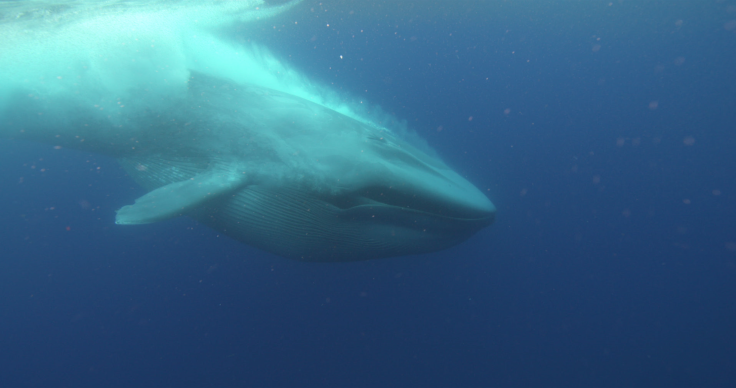Scientists Measure Blue Whale's Heartbeat For The First Time And That Leaves Them Shocked
Scientists have managed to record the heart rate of a blue whale for the first time uncovering new information about the biology of the largest mammal known to mankind.
Researchers from the University of Stanford measured the heartbeat of a blue whale for the first time by using suction cups and attaching electronic sensors to a blue whale's left flipper. The scientists observed the blue whale for 9 hours continuously, as it dove down and resurfaced. According to Live Science, the findings surprised the scientists.
When a blue whale dives, its heart can slow to just two beats per minute. I wrote this piece so that, at normal reading speeds, one such beat would fall at the end of every paragraph. https://t.co/5rRo2hck0F
— Ed Yong (@edyong209) November 25, 2019
The gargantuan creature’s heartbeat fluctuated wildly depending on what it did. While it dove down to the depths of the ocean in search of juicy fish, the heartbeat of the blue whale was as little as 2 beats per minute. Whereas on the surface it increased to almost 40 beats per minute as the mammal restored the oxygen levels of its body, scientists said in a report that was published Monday in the Proceedings of the National Academy of Sciences.
According to the study, a simple act of catching fish may push the heart of the blue whale to its limit, explaining why no creatures larger than the blue whale have been spotted on the planet.
"Animals that are operating at physiological extremes can help us understand biological limits to size," Jeremy Goldbogen, lead study author and an assistant professor at Stanford University in California said in a statement. “They may also be particularly susceptible to changes in their environment that could affect their food supply.”
Researchers said that the findings did not match their expectations. While the whale’s highest heart rate outpaced their prediction, the lowest was about 30% to 50% lower than what they had expected, making the findings all the more interesting.
“These studies may have important implications for the conservation and management of endangered species like blue whales,” Goldbogen added.
Blue Whales, which can measure upto 100 feet when they are fully grown, are thought to be the largest animals to have ever lived on earth. According to urban myths, a beached blue whale’s heart weighed in at 400 pounds (180 kilograms) in 2015 and was the size of a golf cart, Live Science reported.

© Copyright IBTimes 2024. All rights reserved.





















